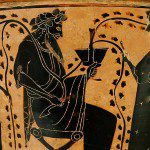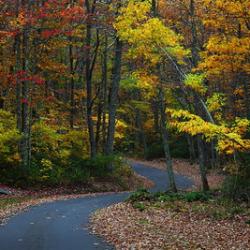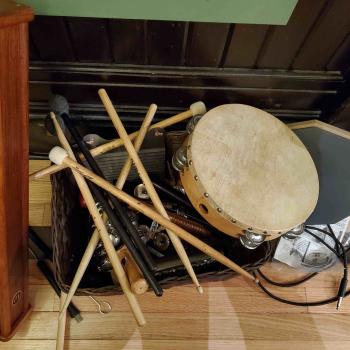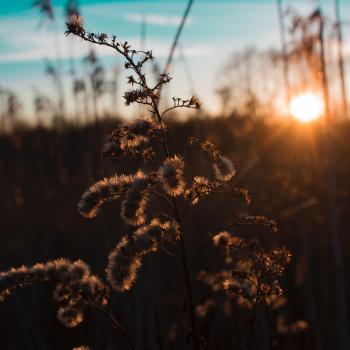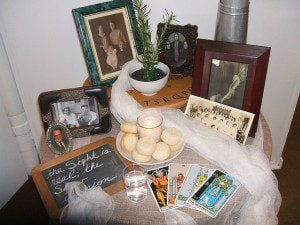
It is safe to say that nearly all Animist or Neo-Pagan paths, from Paleo-Pagan systems to modern expressions like Wicca and the reconstructionist paths involve some degree of ancestor reverence. In the Wiccan tradition in which I became an elder, ancestors were called to every ritual, and given extra prominence at Samhain or when then central working of the ritual called for it- such as devotional work in asking for guidance, or perhaps even a rite of passage.
For me, the practice of earth-centered and Pagan religion is a ritual-focused, relational path- we are constantly making connections on our altars and with our words and deeds. When we see the holy in creation, we strive to be in right relationship with it. But yet, over time, those words that we say in ritual to invite our ancestors can get rote. Certainly we may name specific individuals we have known or who have recently passed away, but very often I have found myself and others inviting “those who have travelled the road before” or “those who whisper wisdom to us” in order to send out the message.
Those who keep permanent home altars put pictures, items from our ancestors as well as offerings as both psychic cues and focal points of ancestral energy; objects have a life of their own, they make the invisible visible, comforting us with the knowledge that that which is gone still watches over and as move in this uncertain cosmos.
Recently, however, I came across the writings of Josephine McCarthy- an author from the United Kingdom who has written many works on magic, and was interviewed in Witches and Pagans magazine. To paraphrase, she believes that it is unwise to call our ancestors in a “catch-all”, lazy way precisely because we do not know all of their personalities. What if our more distant ancestors were devote Christians, and believe themselves in the afterlife? What if they were jerks?
Ancestors had become such a rote part of my practice that I had only considered this question superficially, and it was almost shocking to me that one would not be devoted to them or include them in workings in some way. In a way, it boils down to how you define ancestral spirit(s). Are you talking about only those of memory, or those in your blood line? Can you separate, and clearly- as my Wiccan tradition often did- between ancestors of blood and ancestors of spirit— with ancestors of spirit being those to whom we are not related but to whom we are indebted or admire because they lived and died and had an impact on our lives? And how do you relate to both? Who are you inviting into your sacred space and mind, and to what purpose?
These questions are not questions that only those on animist or allied paths must grapple with alone. Christianity, for example, has its communion of Saints, and every culture Christianity has encountered has had to dialogue with the indigenous conception of ancestors , fusing a new theology that makes sense for believers. One of the more interesting revelations to me when I first studied systematic theology was that some African Christian Theologians, rejecting the Euro-centritic Christian theology of colonization, redefined an African Christianity in part by seeing Christ as Ancestor-Liberator in the same way that one’s tribal ancestors were called upon.
However you interact with and understand your ancestors, taking time to think clearly about your path, to make a systematization of your practice, can be just as helpful as the intuitive, practical and ritual based personal gnosis that neo-Pagans are used to. The knowledge and the lessons of those who have gone before can serve us well, if we are clear on what we intend.



